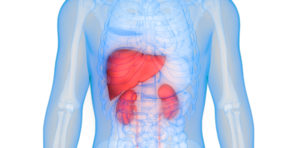Inflammation & Heart Disease
Atherosclerosis is a type of heart disease that involves the buildup of plaque (fatty deposits) in the walls of arteries which results in the obstruction of blood flow. This plaque can rupture causing a clot that occludes the artery. There are often no symptoms until the plaque ruptures, or the buildup is severe enough to block blood flow. This is the direct cause of myocardial infarction (heart attack). The body recognizes this plaque as a foreign substance, and an inflammatory response is triggered. Known as the inflammatory cascade, a combination of specialized chemicals, proteins, and cells are dispatched to the site of the problem with the purpose of destroying what does not belong (the plaque) and healing any damage at the site.
C-Reactive protein is one of these specialized inflammatory substances, and its presence in the blood is a significant indicator of risk for, or presence of, cardiac disease.
C-Reactive Protein & Screening
Studies have shown that men and women with high levels of CRP are much more likely to experience heart attack, stroke, and sudden cardiac death. Because it is now known that elevated CRP levels can be detected in the blood, even in the very early stages of atherosclerosis, CRP screening has become a critical component of early detection, as well as of more advanced disease.
C-Reactive protein is measured in milligrams of CRP per liter of blood (mg/L). In general, a low C-Reactive protein level is better than a high one, because it indicates less inflammation in the body.
A reading of less than 1 mg/L indicates low risk of cardiovascular disease.
A reading between 1 and 2.9 mg/L indicates intermediate risk.
A reading greater than 3 mg/L indicates high risk of cardiovascular disease.
Your CRP screening will consist of a simple finger stick blood test, and the results will be sent to your home. Be sure to share your results with your primary care physician. If your screening reveals a high CRP level, your physician may suggest a statin or other cholesterol-lowering medication. An aspirin regimen may be recommended as well. You should also be encouraged to begin a heart-healthy diet (low sodium, low fat/cholesterol, high in fresh fruits and vegetables), and to eliminate any risk factors for cardiovascular disease that you can. This can include quitting smoking, losing weight, and beginning an exercise regimen.
Who Qualifies for CRP Screening?
Annual CRP screening is recommended for all adults age 50 +, and adults age 40 + who have any risk factors for cardiovascular disease. Including:
- High blood pressure
- High cholesterol
- Diabetes
- Obesity
- Family history of heart disease or stroke
- Tobacco use
If you meet any of the above criteria, please have your CRP screening done as soon as possible.

